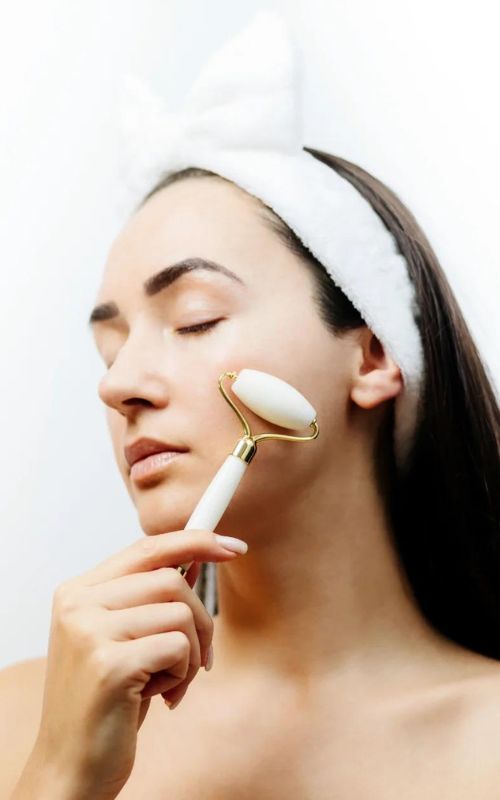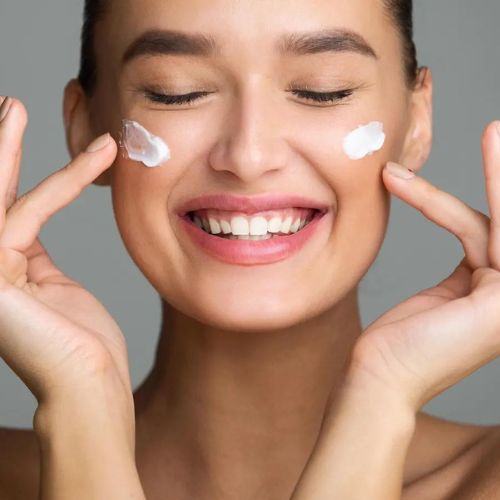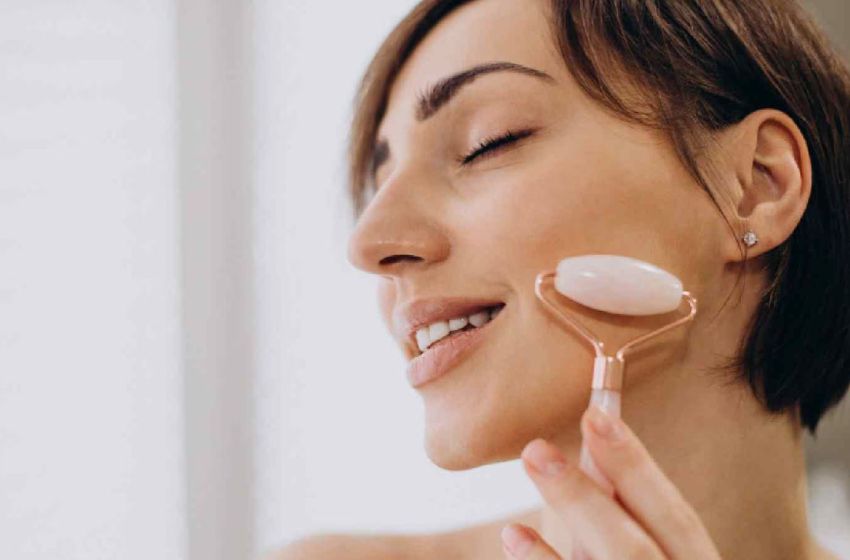
Introduction to the importance of a skincare routine
1. Introduction: Understanding the Importance of a Skincare Routine - In today's fast-paced world, it is easy to neglect our skincare amidst the hustle and bustle of daily life. However, taking care of our skin should not be seen as just another task on our to-do list, but rather as an essential part of self-care. A proper skincare routine not only helps in maintaining healthy and glowing skin but also plays a crucial role in preventing various skin issues such as acne, aging, and even serious conditions like skin cancer.
2. Healthy Skin = Confident You - The condition of our skin can significantly impact how we feel about ourselves. We all want smooth, radiant, and clear skin that makes us feel confident and comfortable in our own skin. By following a consistent skincare routine, you are giving your skin the necessary nourishment it needs to look its best every day.
Step 1: Identify your skin type and concerns
Step 1: Identify your skin type and concerns - The first step to elevating your skincare routine is to identify your unique skin type and concerns. This is crucial because different skin types require different approaches in terms of products and techniques. Additionally, understanding your specific concerns will help you target them effectively and achieve optimal results.
To determine your skin type, there are a few key factors to consider:
1. Oily, Dry, or Combination Skin?
The first thing to determine is whether you have oily, dry, or combination skin. Oily skin tends to produce excess sebum, making the skin look shiny and feeling greasy. On the other hand, dry skin lacks moisture and may appear dull or flaky. Combination skin has both oily and dry areas on the face.
To figure out your skin type, wash your face with a gentle cleanser and wait for about an hour without applying any products. If your entire face feels tight and dry, you most likely have dry skin. If certain areas (usually the T-zone) feel oily while others feel normal or dry, you probably have combination skin. And if your whole face appears shiny, then you likely have oily skin.
2. Sensitive Skin - Sensitive skin can be tricky to identify as it can manifest itself differently in different people. Some signs of sensitive skin include redness, irritation, rashes or breakouts from using certain products or being exposed to harsh ingredients.
Step 2: Cleansing and exfoliating for a fresh canvas
Cleansing and exfoliating are two essential steps in any skincare routine that can have a significant impact on the overall health and appearance of your skin. These steps help to remove impurities, dead skin cells, and excess oil from the surface of your skin, leaving it clean and refreshed. In this section, we will discuss the importance of cleansing and exfoliating and how to incorporate them into your daily skincare routine.
Why is Cleansing Important?
Our skin is exposed to a variety of environmental pollutants, dirt, and bacteria throughout the day. If these impurities are not removed effectively, they can clog our pores, leading to breakouts, dullness, and uneven texture. This is where cleansing comes in – it helps to remove all traces of dirt, oil, makeup residue, and other impurities from our skin's surface.
Choosing the Right Cleanser
The first step towards an effective cleansing routine is finding the right cleanser for your skin type. Whether you have dry, oily or combination skin – there is a perfect cleanser out there for you. Look for gentle yet effective formulas that do not strip away natural oils from your skin or cause irritation. Cream or milk-based cleansers work well for dry or sensitive skin types while foaming or gel-based cleansers are suitable for oily or acne-prone skin.

Step 3: Nourishing your skin with the right products
After cleansing and exfoliating, the next step in elevating your skincare routine is to nourish your skin with the right products. This is a crucial step as it helps to replenish any lost moisture, repair damaged skin cells, and protect your skin from environmental aggressors. Here are some essential products that you should incorporate into your daily routine for healthy and glowing skin.
1. Serum - Serums are concentrated formulas that target specific skin concerns such as dryness, fine lines, or dark spots.
2. Moisturizer – Moisturizer is an essential step in any skincare routine as it helps to hydrate the skin and lock in moisture. Look for a moisturizer that contains ingredients like glycerin or ceramides which help to strengthen the skin’s barrier function. If you have oily or acne-prone skin, opt for an oil-free moisturizer or one with salicylic acid to control excess sebum production.
Step 5: Final touches and maintenance for long-term results
Step 5: Final touches and maintenance for long-term results
After following the previous steps in this guide, you should have a solid skincare routine that addresses all your skin concerns and leaves your complexion glowing. However, to maintain these results in the long run, it is important to incorporate some final touches and make necessary adjustments to your routine. In this section, we will discuss the key elements of maintaining a healthy and radiant complexion.
1. Exfoliation:Exfoliation is an essential step in any skincare routine as it helps remove dead skin cells, unclog pores, and promote cell turnover. However, over-exfoliating can damage the skin's barrier function and cause irritation. It is recommended to exfoliate no more than twice a week with gentle chemical exfoliants such as AHA or BHA. If you prefer physical exfoliators like scrubs or brushes, be sure to use them sparingly and with a light hand.
2. Sun protection:Protecting your skin from harmful UV rays should be a crucial part of your daily skincare routine. Exposure to UV radiation not only causes premature aging but also increases the risk of skin cancer. Make sure to apply sunscreen with at least SPF 30 every day before stepping out into the sun, even on cloudy days or during winter months.
3. Hydration:Keeping your skin hydrated is vital for its overall health and appearance. Use hydrating products such as serums or moisturizers that contain hyaluronic acid or gly
Conclusion
By following these 5 essential steps, you can elevate your skincare routine and achieve healthier, glowing skin. Remember to always cleanse, exfoliate, tone, moisturize and protect your skin with the right products for your specific skin type. With consistency and patience, you'll see a noticeable difference in the appearance and overall health of your skin. Don't be afraid to experiment with different products until you find what works best for you. Healthy skin is an investment that will pay off in the long run so don't hesitate to prioritize it in your daily routine.



